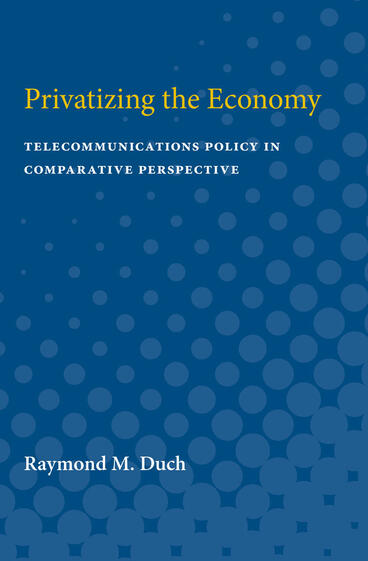Privatizing the Economy
Telecommunications Policy in Comparative Perspective
Description
During the 1980s government economic policies in the United States and many Western countries promoted the privatization of state-owned activities and the liberalization of competition. This has been the Reagan-Thatcher legacy to contemporary political economy. Privatizing the Economy takes a careful second look at the economic arguments that link government ownership with poor economic performance. Through a rigorous comparative analysis of telecommunications policies in France, Germany, and the United Kingdom, Raymond Duch shows that it is political control rather than economic ownership that accounts for variations in economic performance. He also provides a political explanation of why privatization has progressed further in some countries than others.
Privatizing the Economy strikes a unique balance between economic and political theory, empirical and theoretical analysis, and cross-national and case-study research design. Having identified the weaknesses of economic arguments regarding public versus private ownership, the author proposes an alternative political explanation for the variations in the performance of public and private firms. The author seeks to explain why some governments have adopted liberal economic policies while others have not. The discussion draws upon an extensive political economy literature, pointing out weaknesses of existing theories and suggesting a novel way of looking at policy change.
Evidence supporting the author's theoretical propositions comes from two distinct comparative research traditions: cross-national and case-study analyses.
This novel way of looking at policy change and the author's broad use of political economy literature offers readers an understanding of what benefits liberal economic policies might deliver and of the likelihood that such policy initiatives might succeed.

